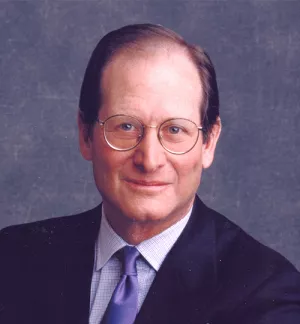In the past 20 years, many dimensions of the general counsel's job have changed dramatically for the better: responsibilities, challenges, value to the corporation, compensation, stature in the profession.
But one has not: GCs are still dependent on the CEO and constrained by company culture.
Being GC, some would argue, is more fun, more interesting, and more rewarding (in many ways) than being a senior partner in a law firm. But outside lawyers still have one advantage over GCs: They can fire the client much more easily.
So if that relationship is so important, shouldn't GC candidates do careful due diligence on the CEO—and the company culture—before accepting the job, especially at a time when corporations are beset on all sides by critics and when an integrity lapse can have catastrophic effects?
The answer, of course, is yes. If few legal jobs are as good as being a GC in a good company with a good CEO, few jobs are worse than being trapped working for a CEO with questionable values in a company without a culture of integrity—of being ignored, forced to do questionable acts, unable to escape without serious harm to reputation and pocketbook.
But how many GC candidates do systematic, in-depth diligence before signing up for a tour of corporate duty? I didn't. (But I was lucky. See "What I Didn't Know Before GE," below.)
Such diligence involves far more than a check on whether the CEO is a "good person" and whether company prospects are "strong." It should involve a detailed inquiry into whether the CEO and the board of directors are committed to a lawful, ethical company—and how that commitment is carried out.
The importance of such diligence occurred to me as I was finishing a book this spring aimed at CEOs and other top business leaders: High Performance With High Integrity (Harvard Business Press 2008). Based on my nearly 20 years in global business, my book argues that these are the twin goals of contemporary companies and global capitalism; that the governance debate of the past 10 years has spent far too much time on directors and far too little on governance of the company from the CEO down; and that there are core principles and practices that CEOs should adopt to fuse performance and integrity and, ultimately, to create a robust, uniform, global culture where employees want to do the right thing.
FUNDAMENTAL QUESTIONS
But, as I thought about the risks companies and GCs increasingly face (look at the lengthening list of GCs investigated and indicted), I realized that the core principles CEOs should follow are also fundamental questions that would-be GCs should ask.
• Does the CEO demonstrate committed and consistent leadership—not just mouthing "tone at the top" pieties but making clear that integrity misses are firing offenses, communicating tough integrity decisions candidly, and exemplifying values in personal actions in all settings, not just in company set-pieces?
• Does the CEO put primary responsibility for fusing performance with integrity on business leaders, not passing it off to staff leaders, by requiring that business heads imbed systems and processes to prevent, detect, and respond in business operations, staff those processes with "A" players, and resource them right?
• Does the CEO have a systematic process for identifying "ethical" issues beyond legal requirements and making decisions on priority matters through a risk-reward process that recognizes costs are investments and benefits may not yield hard metrics but depend, instead, on common-sense judgment about what is in the enlightened self-interest of the company over time?
• Does the CEO require early warning systems that identify trends in law, ethics, and country risk and that become part of the regular business rhythms, leading to real analysis and real decisions?
• Is the CEO dedicated to making the education and training on "integrity" and "business in society" issues as interesting and engaging for employees as the training on other business fundamentals like finance, sales, marketing, engineering, and IT in order to foster awareness, knowledge, and commitment?
• Does the CEO give employees "voice," encouraging them to come forward with concerns that will be treated fairly, promptly, and respectfully, without retaliation, thus avoiding the "culture of silence" that has characterized so many corporate scandals that have gone on so long and involved so many?
• Does the board compensate the CEO not just with "pay for performance" but with "pay for performance with integrity," which measures adoption of principles, implementation of practices, employee culture, annual goals, and comparisons to peers?
• Importantly, does the CEO encourage the GC, CFO, and HR leader to be both partners in performance and guardians on integrity, recognizing the vital importance of staff leaders in raising issues, even at uncomfortable times, that go to questions of law, ethics, and reputation, and requiring they be strong colleagues, not turf-fighting rivals?
HOW TO FIND OUT
The GC candidate can also explore how these principles (and the associated practices) apply to some of the toughest issues facing corporations: emerging markets, acquisition diligence and integration, crisis management, public policy, and reputation. And even if the CEO and the corporation are not fully engaged on all these questions, the would-be GC must try to determine how open the CEO and the company are to changes in those directions.
In short, would-be GCs act at their peril if they are not satisfied that the CEO is leading a high-performance-with-high-integrity company—or is committed to getting there.
One obvious objection to this detailed diligence: How can it be conducted in the company while the GC candidate is competing for the job?
One obvious answer is that on both sides of an interview table there is both selling and assessing going on. Asking good, tough, sophisticated questions about the organization can help advance the candidacy because it reflects an understanding of how big corporations operate.
Moreover, if offered the job, potential GCs can then ask for an opportunity to "learn the company" better before accepting. They can get into more detail with key leaders in addition to the CEO (e.g., CFO, HR leader, selected business leaders, lead ombudsperson, head of audit staff).
It is also appropriate then for the prospective GC to speak to one or two members of the board (e.g., the head of the audit committee or the head of the nominating and governance committee).
Of course, in the Internet age, there is a significant amount of public material available that can inform the decision.
When I was recruiting senior lawyers into GE, I would often say to the top candidates at the last interview that, while it was hard to know exactly where they were going to land, they should put on their Evel Knievel star-spangled suit, gun the motorcycle, and leap the chasm from practice to the corporation.
Today, with business-in-society issues of far greater salience, with major integrity misses having calamitous impact, with corporate counsel in the gun sights of the regulators, and with high performance with high integrity the foundation of the corporation, I might add, "But look—and look hard—before you leap."
Ben W. Heineman Jr., former General Electric Co. senior vice president/general counsel, is currently distinguished senior fellow at Harvard Law School's Program on the Legal Profession and senior fellow at the Belfer Center for Science and International Affairs at Harvard's John F. Kennedy School of Government. He is also senior counsel to Wilmer Cutler Pickering Hale and Dorr. This commentary first appeared in Incisive Media's magazine Corporate Counsel.
Heineman, Ben. “Don't Get Blindsided By Your New Job.” September 22, 2008


